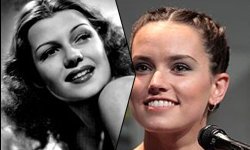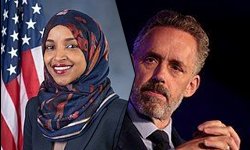BioGraph
Connecting Hugh Hefner and J. Edgar Hoover
Hugh Hefner
Haley had also interviewed Malcolm X in 1963 and Martin Luther King Jr. in 1966 for the newly established 1962 "playboy interview".
Martin Luther King Jr.
There were several dramatic standoffs with segregationist authorities, who sometimes turned violent. Several times King would be jailed. Federal Bureau of Investigation (FBI) Director J. Edgar Hoover considered King a radical and made him an object of the FBI's COINTELPRO from 1963, forward.
He warned King to discontinue these associations and later felt compelled to issue the written directive that authorized the FBI to wiretap King and other SCLC leaders. FBI Director J. Edgar Hoover feared the civil rights movement and investigated the allegations of communist infiltration.
FBI director J. Edgar Hoover personally ordered surveillance of King, with the intent to undermine his power as a civil rights leader.<ref name="MED08-2">{{cite book|url=https://archive.org/details/april41968martin00dyso|title=April 4, 1968: Martin Luther King Jr.'s death and how it changed America|last=Dyson|first=Michael Eric|publisher= Basic Civitas Books|year=2008|isbn=978-0-465-00212-2|pages=[https://archive.org/details/april41968martin00dyso/page/58 58–59]|chapter=Facing Death|chapter-url=https://archive.org/details/april41968martin00dyso|url-access=registration}}
Hugh Hefner
In ''Roots: The Next Generations'' (1979), the interview was recreated with James Earl Jones as Haley and Marlon Brando as Rockwell.
James Earl Jones
American actor
In March 2012, Jones played the role of President Art Hockstader in Gore Vidal's '' The Best Man'' on Broadway at the Schoenfeld Theatre: he was nominated for a Tony for Best Performance in a Lead Role in a Revival. The play also starred Angela Lansbury, John Larroquette (as candidate William Russell), Candice Bergen, Eric McCormack (as candidate Senator Joseph Cantwell), Jefferson Mays, Michael McKean, and Kerry Butler, with direction by Michael Wilson.
Michael McKean
In early 2014, McKean played J. Edgar Hoover in Broadway previews of Robert Schenkkan's Lyndon B. Johnson bio-play '' All the Way'', starring Emmy winner Bryan Cranston as Lyndon B. Johnson.
Hugh Hefner
During the civil rights movement in 1966, Hefner sent Alex Haley to interview American Nazi Party founder George Lincoln Rockwell, much to Rockwell's shock because Haley was black.
George Lincoln Rockwell
In 1966, after hearing the slogan "Black Power" during a debate with Black Panther Party leader Stokely Carmichael, Rockwell altered the phrase and started a call for "White Power".
Stokely Carmichael
African American activist (1941–1998)
J. Edgar Hoover, director of the FBI, secretly identified Carmichael as the man most likely to succeed Malcolm X as America's "black messiah".
During this period, Carmichael was targeted by a section of J. Edgar Hoover's COINTELPRO (counter-intelligence program) that focused on black activists; the program promoted slander and violence against targets Hoover considered enemies of the US government.
After the riots, FBI director J. Edgar Hoover instructed a team of agents to find evidence connecting Carmichael to them.
Hugh Hefner
On June 4, 1963, Hefner was arrested for promoting obscene literature after he published an issue of ''Playboy'' featuring nude shots of Jayne Mansfield in bed with a man present.
Jayne Mansfield
She was allegedly intimately involved with numerous men, including Robert and John F. Kennedy, her attorney Samuel S. Brody, and Las Vegas entertainer Nelson Sardelli.
Mansfield was allegedly intimately involved with many men, including Claude Terrail (owner of the Paris restaurant Tour d'Argent), Robert F. Kennedy, John F. Kennedy, Brazilian billionaire Jorge Guinle, her attorney Samuel S. Brody, Las Vegas entertainer Nelson Sardelli, and producer Enrico Bomba.
She met John F. Kennedy through his brother-in-law Peter Lawford in Palm Springs, California, in 1960, but their alleged affair did not last.
John F. Kennedy
In February 1962, FBI Director J. Edgar Hoover, who was suspicious of civil-rights leader Martin Luther King Jr. and viewed him as an upstart troublemaker, presented the Kennedy administration with allegations that some of King's close confidants and advisers were communists.







